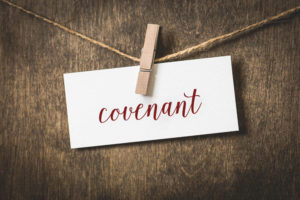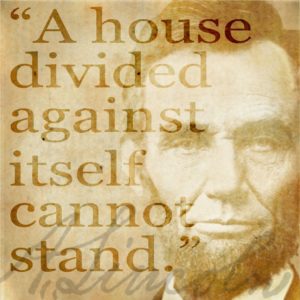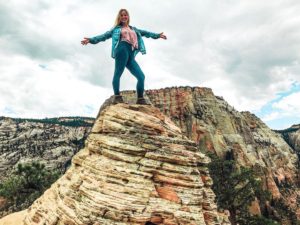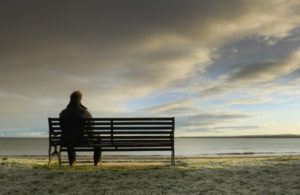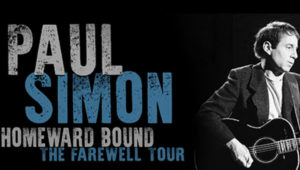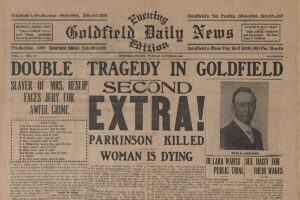
This paper looks interesting.
Local news is endangered nationwide.
That’s not good news.
Democracy really does die in darkness.
According to a recent report on the state of local news, there are 204 counties in America with no news outlets and 1,562 counties with only one.
The Local News Initiative at Northwestern University reports that 2,900 plus dailies and weeklies have failed since 2005, including 130 in 2023.
Technically, we don’t live in a news desert, but our news diet is full of empty calories.
We have two daily newspapers that are shells of what they once were, and with all due respect to my friends in local TV News, they cover “big” and “visual” stories. They don’t cover the nuts and bolts of cities, the stuff you need to know.
What’s filled the vacuum are anonymous emails, social media posts (that are often way off base) and well-meaning citizen journalists who try, but often fall short for lack of time, reach and resources.
When I moved to South Florida in 1987, the Boca-Delray area enjoyed wall to wall coverage. We had three daily newspapers (the Sun-Sentinel, Palm Beach Post and Boca News and on big stories the Miami Herald would come to town), the twice weekly Monday Thursday Papers, a few local magazines, a handful of local radio stations (with actual news departments) and three TV stations.
You had to work hard to be uninformed in those days. Reporters were part of the community; we knew our beat reporters and they were often with us for years.
It wasn’t uncommon to see editors at City Hall watching meetings and trying to get the small details right to make their stories better. Today, editors sit in some remote newsroom (or in their living rooms) and my guess is many wouldn’t know Atlantic Avenue from Atlantic Boulevard. Ugh!
If you want to see how out of touch they are, read their political endorsements—utterly clueless. Check that, embarrassingly clueless. I mean pull your hair out, scream at the moon, pinch yourself to see if your hallucinating clueless.
I digress.
Sadly, the internet ate newspapers.
Local journalism is a casualty of technology and frankly some bad decisions by corporate actors who killed papers by the thousands.
Newspapers caused some of their own struggles. Many failed to invest in their newsrooms and the industry missed the boat on how tech would devastate their bottom lines. Craig’s List and eBay destroyed classified ads, Zillow and the like took away real estate ads and Google took the rest.
Yet, we need journalism.
The loss of local newspapers means we know less about the places where we live and the people who serve us. I believe we’ve lost a great deal of civic engagement because we’ve lost newspapers and because we’ve ceded the public square to those who yell the loudest or those who have an agenda.
Yes, the very notion of community is at risk as we sink into our phones. I was a young reporter in a Delray Beach where reporters competed for scoops, fresh angles and what we called “enterprise” stories that were a little more in-depth than taking dictation at some commission meeting.
I’d like to think the community was better informed and more engaged as a result. More people voted, more people volunteered, and more people turned up at city sponsored charettes. (Remember those?) And if you must look up the word, it’s because we haven’t had a gathering of the community to share ideas in a long time.
We were also building back then, downtown needed CPR, neighborhoods were plagued by crime, there was a sense of urgency to breathe life into the city and to attract investment. These days we wrestle with success. (P.S. I’d much rather manage success than deal with a crack cocaine epidemic.)
So, when I hear candidates vow to solve traffic downtown or complain about leaf blowers, I scratch my head. We worked 25 years to put traffic on Atlantic Avenue. And the only leaves blowing were tumble weeds down our main street.
Want to solve traffic? It’s easy, create places nobody wants to visit.
For the rest of us, if you want to avoid traffic downtown, please use the grid system. Delray has wonderful “bones”—as a result I can zip around town by using the grid. I use Atlantic when I want to see what’s going on. It’s a great street my friends, but if I have get somewhere quick I use our wonderful grid.
But let’s get back to local journalism.
Regardless of where you are in your city’s lifecycle journalism is important. Accurate Information is valuable currency.
So, is there hope? If so, where?
I have some optimism in a nascent effort called “Stet Media.”
“Stet” is an old copy-editing term, lost on a generation of young journalists but the term brings a smile to this former reporter. Stet Media Group provides local news coverage in Palm Beach County.
From their website https://www.stetnews.org/ “ Yep. We’re different.
We don’t chase the story of the day. No car wrecks. No clickbait. (OK, we’ll tell you when a Cheesecake Factory is opening. Because: cheesecake.)
Our passion is public interest journalism. That means the stories we write, how we engage with readers and the events we hold are all guided by one question: How are we serving the community?
In town after town, news has gone dark in Palm Beach County. There are plenty of hardworking reporters, but years of cutbacks have narrowed reporting to fewer topics and fewer towns. Bloggers and smaller news organizations are doing great work, but too many are flying below the radar.
That’s where we come in. We’re writing stories others aren’t. We emphasize context, not just news. We’ll share important documents. We’ll highlight compelling stories from other reporters and show you where you can read more of them.”
Music to my ears.
Stet just celebrated its one-year anniversary.
I wish them well. Their reporting is stellar. There’s talent at work here.
They tend to be West Palm/North County focused but maybe as they grow they’ll dedicate some resources to Boca-Delray–we sure have our share of news and misinformation.
